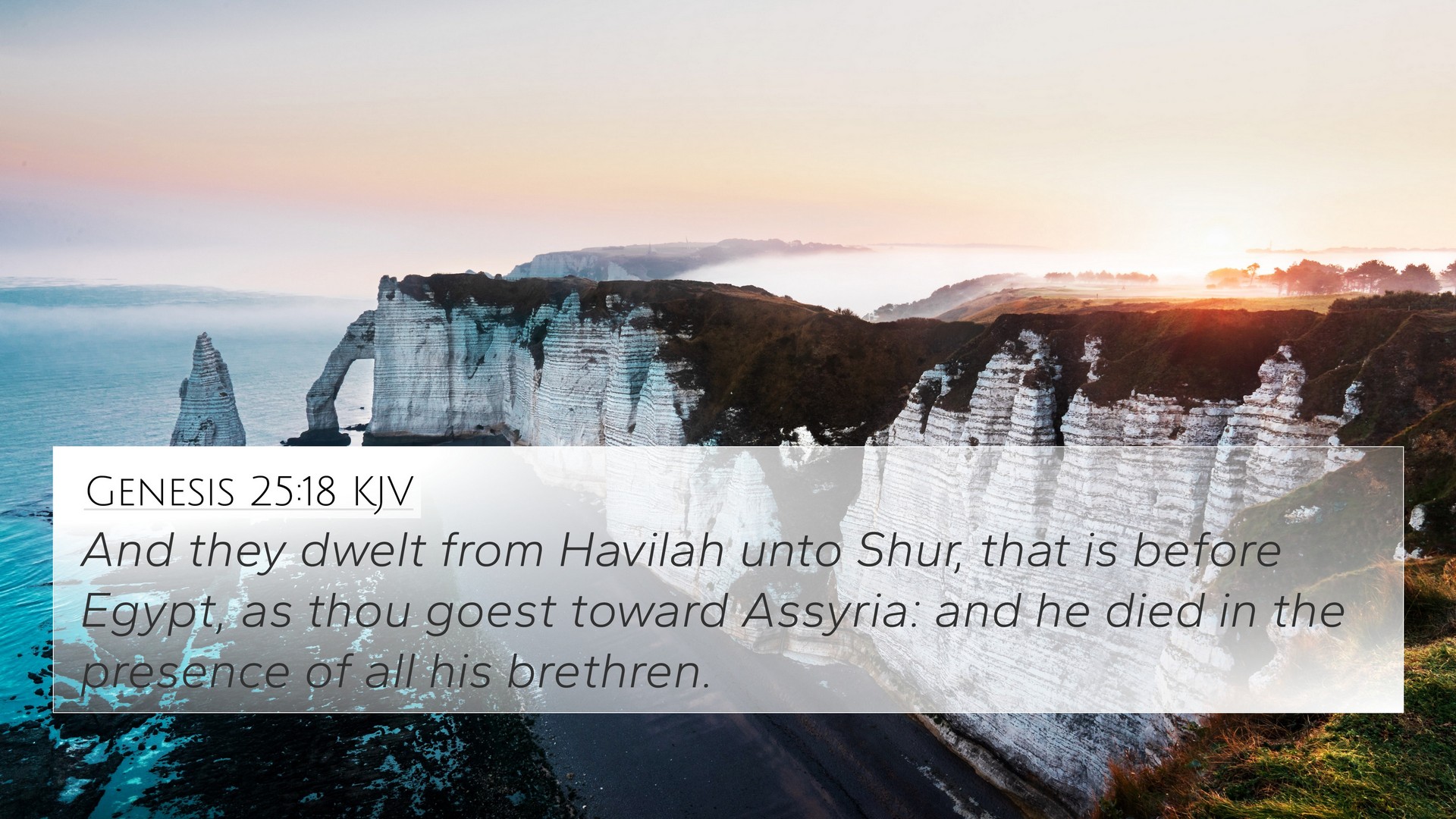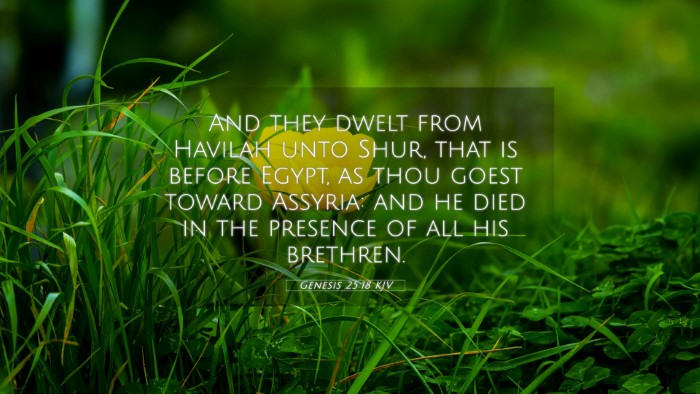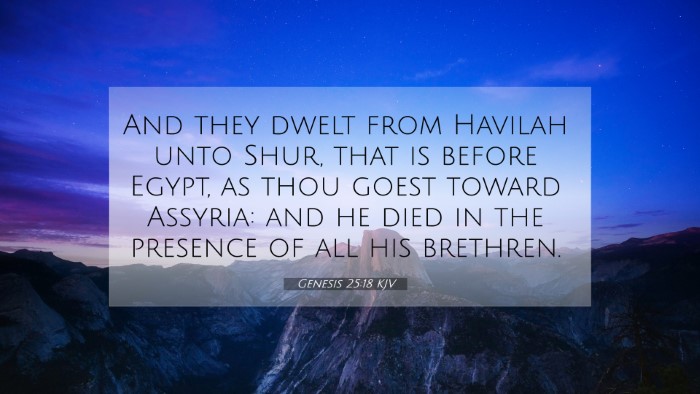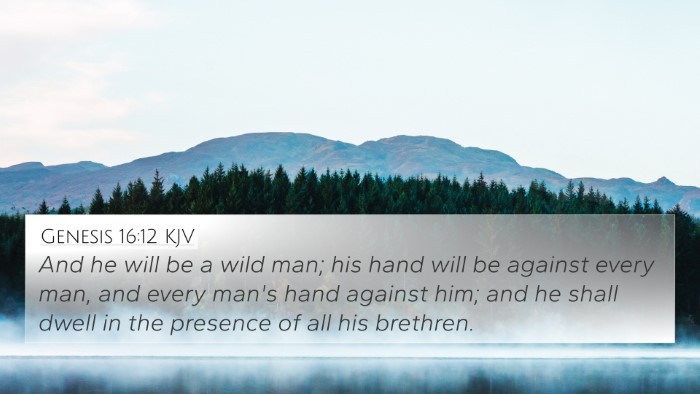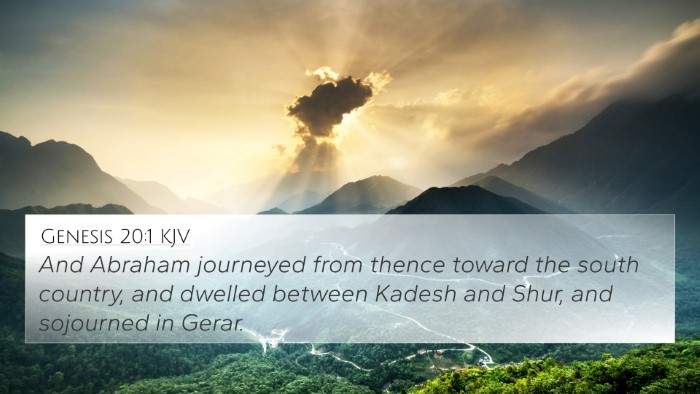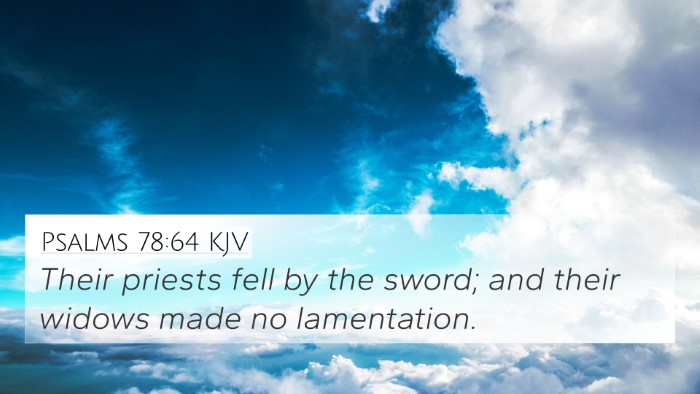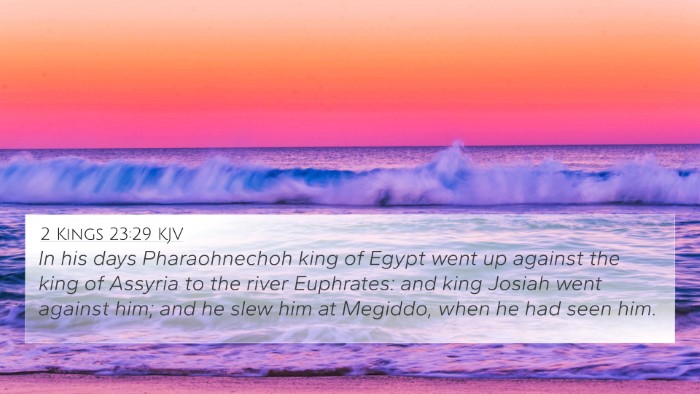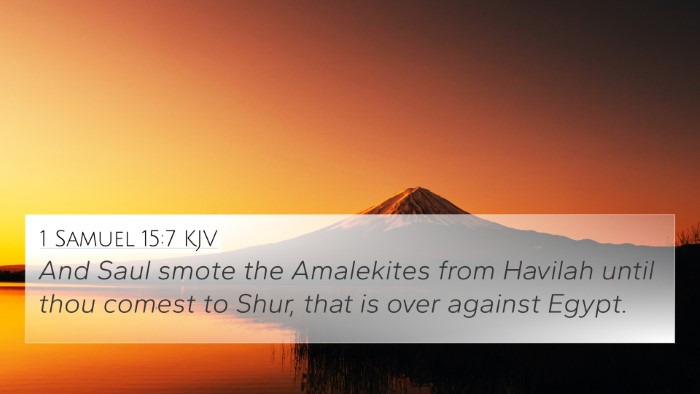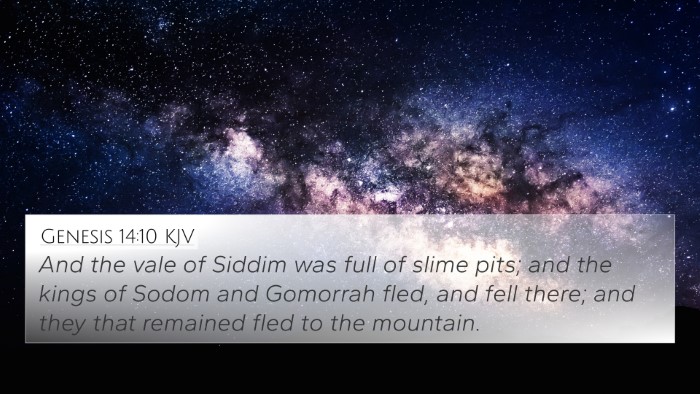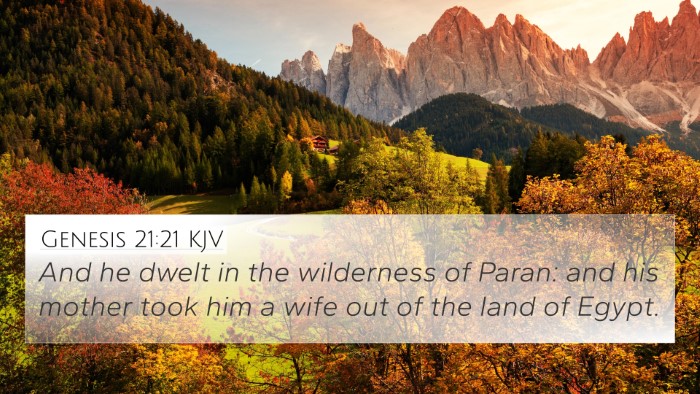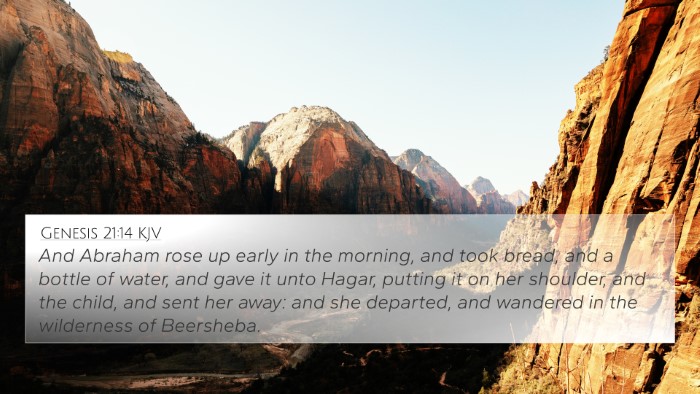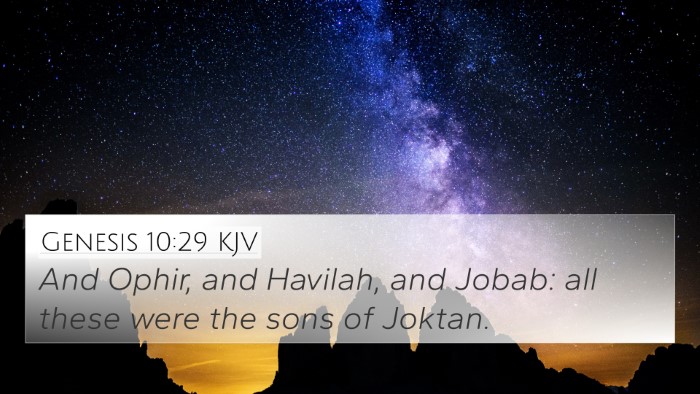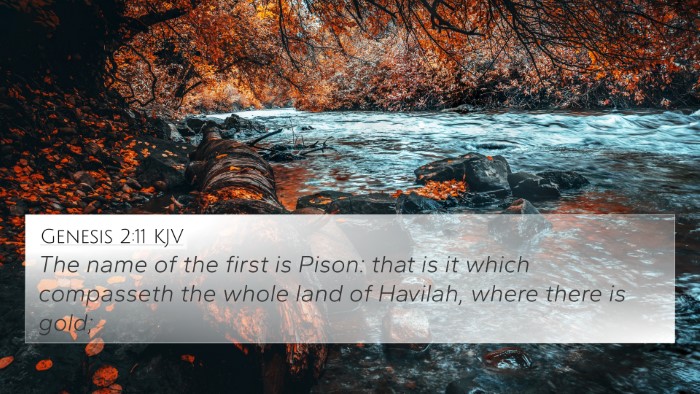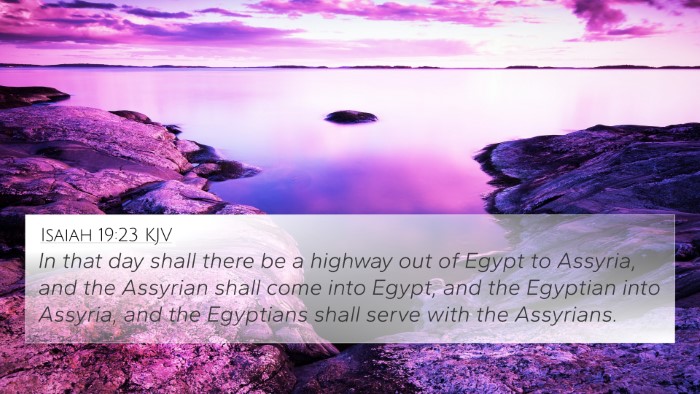Understanding Genesis 25:18
Genesis 25:18 states: "And they dwelt from Havilah unto Shur, that is before Egypt, as thou goest toward Assyria: and he died in the presence of all his brethren."
This verse refers to the descendants of Ishmael, the son of Abraham and Hagar. The context of this passage reflects the conclusion of Ishmael's life, emphasizing his interactions and relationships with his family, particularly his brothers.
Insights from Commentaries
-
Matthew Henry:
Henry notes that Ishmael's dwelling places indicate a significant geographical spread and fulfillment of God's promise to multiply his descendants. The mention of "before Egypt" suggests a formidable presence in the region, yet ultimately emphasizes the enduring strife between Ishmael's descendants and those of Isaac.
-
Albert Barnes:
Barnes elaborates on the meaning of Ishmael's death, recognizing its communal aspect, as he passed away surrounded by family, highlighting the complex familial dynamics present among Abraham's descendants. Also, his geographical context suggests a strategic positioning for the future of his lineage.
-
Adam Clarke:
Clarke discusses the historical and prophetic implications of Ishmael's lineage. He also comments on the significance of Havilah and Shur as marker regions for Ishmael's descendants, indicating a plan for expansion as promised by God. Clarke draws attention to the broader narrative of God's covenant with Abraham, which includes Ishmael, noting the importance of coexistence and conflict between brothers.
Thematic Bible Verse Connections
Genesis 25:18 reflects several key themes related to familial relationships, divine promise, and geographic significance. Below are some thematic connections and relevant verses that enrich the understanding of this passage:
- Genesis 16:11-12: This passage contains God's promise to Hagar regarding Ishmael's future—a crucial context for understanding his lineage and legacy.
- Genesis 17:20: God's covenant with Abraham mentions the blessings upon Ishmael, highlighting the divine promise over this lineage.
- Genesis 21:20-21: The survival of Ishmael in the wilderness points to God's provision, reiterating the significance of his descendants.
- Galatians 4:22-23: Paul's allegory of Hagar and Sarah also connects with Ishmael's story, illustrating the juxtaposition of two covenants.
- Matthew 1:2-3: The genealogy includes aspects of Abraham's lineage, showcasing the broader familial context and its implications for biblical history.
- Jeremiah 49:28-30: This passage references the people descended from Ishmael and God's intentions concerning them, providing a prophetic lens to the verse.
- John 8:39: Jesus’ mention of Abraham’s descendants creates a bridge to understanding the distinct lines from Abraham, including Ishmael.
Cross-Referencing Biblical Texts
The practice of cross-referencing Biblical texts enriches one’s understanding of passages like Genesis 25:18. Here are tools and methods to facilitate deeper engagement with scriptures:
- Bible Concordance: Offers an alphabetical index of words in the Bible, facilitating quick reference to related verses.
- Bible Cross-reference Guide: Provides context-specific references, often aligning similar themes or narratives.
- Cross-reference Bible Study: Engaging in studies where overlapping themes or characters are analyzed can foster a deeper understanding.
- How to Use Bible Cross-references: Important for identifying connections which may not be immediately apparent, guiding readers through linked verses.
- Bible Chain References: Establishes linked verses in a sequence to trace themes through the Bible.
- Comprehensive Bible Cross-reference Materials: These resources help with extensive studies, often used in sermon preparation or personal study.
Conclusion
Understanding Genesis 25:18 involves examining the cultural, historical, and spiritual dynamics inherent in Ishmael’s life and legacy. This verse relates to multiple biblical themes and connections, providing a rich background for theological exploration. By utilizing tools for Bible cross-referencing, readers can engage in a deeper study of the scriptures' interconnectedness.
